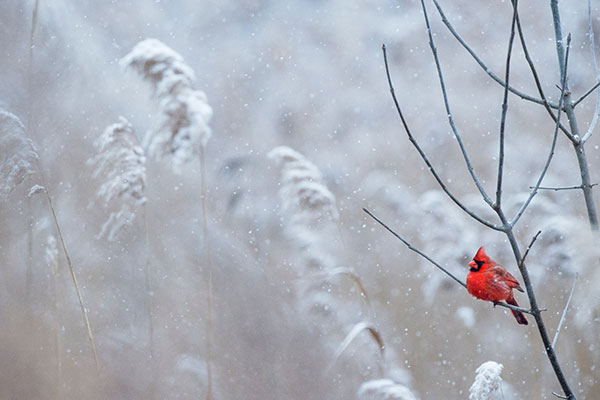Subtotal: $
Checkout
Hope for the Cruelest Month
From Ant Clemons and Justin Timberlake to Dietrich Bonhoeffer
By Chris Zimmerman
February 10, 2021
T. S. Eliot famously called April “the cruelest month,” probably because of the switch-and-bait playfulness with which it announces the arrival of spring. My vote’s for February. True, January’s often no different, weather-wise, but as the month of new resolutions and beginnings and the chance to get back to work after too much good food and too many cloying sentiments, it tends to go by in a flash. Whereas February . . . at least here in the Northeast, it always seems to drag on, with leaden skies and bleak landscapes, snow, rain, slush, and sleet.
This year, February promises to be especially arduous, with last month’s staggering pandemic death toll leaving a record number of grief-stricken families struggling to make sense of their loss, and funeral arrangements and payments. As if that weren’t enough, jobless claims are on the rise, as is homelessness and food insecurity. The brightest promises of short-term relief cannot erase the specter of fear haunting so many homes these days. If there was ever a winter of discontent, this is it.
Cue New Jersey musician Ant Clemons, and his recent hit “Better Days.” Featuring Justin Timberlake, who sings with the sort of energetic intensity that makes you sit up and listen (rather than the breathy crooning that smothers way too much pop these days), Clemons’s song reminds us that if your faith is at a low ebb – if you feel “kicked down and let down” and have “waited for too long for somethin’ to lean on” – it’s more vital than ever to look upward, and forward:
You gonn’ see there’s a light at the end of the tunnel.
Keep your eyes on the road ahead.
And if you’re feelin’ lost in the night, it’s okay to cry,
just as long as you hold your head.
’Cause we’re on our way to better.
Better’s ahead, better’s ahead . . .
It gets worse ’fore it gets better,
but better days are comin’, I know.
Listening to these words the other night, I began thinking about the uncanny power of music as a bulwark against despair, and about another song of hope written in another dark time: Dietrich Bonhoeffer’s “Von Guten Mächten.” (Don’t be put off by the German – stay with me.)
Carefully penned on a scrap of paper in the notorious Nazi dungeon on Prinz-Albrecht-Strasse in Berlin, “Von Guten Mächten” (“By Good Powers”) originated as a poem. Bonhoeffer wrote it there sometime around Christmas 1944 – his last. Five weeks later, in February 1945, this fearless dissident pastor, whose chief crime was insisting that loyalty to one’s conscience should always trump obedience to the state, was transferred to another cellar, this time at Buchenwald, the country’s biggest concentration camp.
Meanwhile, Bonhoeffer’s handwritten verses had reached their intended recipient – his fiancée, Maria von Wedemeyer. In the intervening decades, they have been set to music dozens of times. (Today, the best-known melody can be found in the country’s leading hymnal and is familiar to Protestant churchgoers across Germany.)
But back to Ant Clemons’s “Better Days.” On the surface, it could not be more different. And yet: a closer reading of both songs yields real similarities. First, both acknowledge that anxiety and despair are not just emotions to be banished at will, but powerful forces that may reappear just when you think you’ve overcome them. Second, both suggest that finding hope is rarely a matter of just choosing optimism, but more often an act of faith – the result of a decision to keep pressing onward, even if it means making your way through darkness.
Hope doesn’t just spring from the fact that there is light at the end of life’s tunnels, but from the fact that we don’t have to crawl through those tunnels alone.
While Bonhoeffer’s text also differs from Clemons’s in being overtly spiritual (it’s addressed to God, and contains a Biblical allusion or two), it also touches on another idea: hope doesn’t just spring from the fact that there is light at the end of life’s tunnels, but from the fact that we don’t have to crawl through those tunnels alone. In other words, to Bonhoeffer, hope arises from – and is sustained by – community with others.
Community is a theme Bonhoeffer returned to repeatedly as a theologian. Aside from devoting a whole book, Life Together, to the subject, he actually founded a community of sorts, Finkenwalde. An underground seminary on the Baltic, Finkenwalde blossomed from 1935 to 1937, when it was dissolved by the Nazis. And despite the secrecy surrounding it, it quickly gained a reputation as a remarkable place: Bonhoeffer and his fellow instructors not only taught the young men enrolled there, but lived and worked and prayed alongside them.
(Interestingly, one of Bonhoeffer’s legacies as a mentor and teacher was his love for “black” music; in particular, the enthusiasm with which he introduced his students to spirituals. While studying in New York City in 1930-31, he had been a frequent worshipper at Abyssinian Baptist, Harlem’s preeminent church, and he brought dozens of records back home with him. Is it really such a stretch to imagine this highly educated German churchman cheering Anton Clemons and Justin Timberlake on their musical collaboration?)
More than an experiment, Finkenwalde was, to Bonhoeffer, an expression of what he felt was the only viable future for the church. Long before the horrors of Auschwitz were known to the world – and long before the complicity of the Roman Catholic Church and the Lutheran Landeskirche (state church) in the sins of the Third Reich were common knowledge, as they are today – Bonhoeffer lamented the fact that by the time Hitler was defeated, the church as an institution would have lost the final shreds of whatever credibility it might still possess. In his mind, it could only regain it by modeling community: that is, by practicing mutual aid, sharing available resources, and standing in solidarity with the suffering, the disenfranchised, and the oppressed. To quote him (from a letter of September 19, 1936, to Karl Barth), “I am firmly convinced that . . . what we need . . . is a real caring and pastorally-inclined community . . . a kind of life together.”
Incidentally, Bonhoeffer knew of the Bruderhof and was reportedly fascinated by it. In specific, he met Bruderhof member Hardy Arnold twice in London in the summer of 1934 to discuss his thoughts on community, and he expressed interest in meeting the community’s founder, Eberhard Arnold. (Their fathers had both been professors at the University of Breslau, and the families were acquainted.) Unfortunately, the visit never materialized.
As for his own dreams of community at the time he wrote “Von Guten Mächten,” Bonhoeffer never seems to have given up believing that if God willed it, he would, despite all odds, survive the war, reunite with his family and his fiancée, and help re-found his church: not on the basis of religion per se, but on the Sermon on the Mount, and on brotherly and sisterly love. In fact, he never tasted freedom again but was transferred one last time, to Flossenbürg, a concentration camp in Bavaria. There, in April 1945, just days before the camp was liberated by the Allies, he was hanged by personal order of Hitler.

Photograph by Ray Hennessy
As our present-day plague rolls on, leaving not just sick and dead bodies in its wake, but also the wreckage of isolation, loneliness, domestic violence, mental illness, and suicide, the rediscovery of community – whatever form or shape it may take – has never seemed more important or urgent. After all, we are communal creatures, which is why the worst punishment humans have ever devised is solitary confinement, whether in a prison cell or a lonely apartment, with nothing but a flickering screen for company.
Circumstances may not allow for much community quite yet. Most of us haven’t been vaccinated and so can’t yet return to work or school or church, or to whatever circle of friends or relatives we’ve been pining to rejoin. Still, we can always dig in our heels and hope against hope that when this all this is finally over, our growing hunger will be shared by others. Not just for a return to normal social life, but for a springtime rebirth of true community.
Until then, I’m for joining Ant Clemons in believing that better days are coming; and Dietrich Bonhoeffer, in believing that despite all that frightens us, the power of goodness is still at work in the world, and that there is reason to meet whatever the rest of 2021 brings our way with confidence.
If you’re interested in reading “Von Guten Mächten,” see Bonhoeffer’s original here. Translations abound; this one’s mine:
Surrounded by the silent powers of goodness,
protected and secured against all fear,
so may I walk with you into the future
and confidently meet the coming year.
When burdens from the past return to haunt us,
when heaviness or evil brings distress,
O Lord, then grant our frightened souls and spirits
the saving grace that you’ve prepared for us.
And should it be our lot to bear with suffering,
to drink the bitter cup at your command,
may we accept it gladly, without trembling,
as offered by your good and loving hand.
Or should you give us happiness, or bless us
with earthly joys – with laughter and bright sun –
then too let us be mindful how you’ve led us,
and dedicate our lives to you alone.
O Lord, give us the radiance of candles
whose silent, steady flames burn through the night.
Lead us together again, if you so will it;
and shine upon our darkness with your light.
And as the silence grows and deepens round us,
give us the ears to hear the ringing sounds
of joyous praise arising from your children,
and echoing from the unseen world around.
By powers of goodness wondrously surrounded,
we’ll face tomorrow boldly, come what may.
God is with us each morning and each evening:
His faithfulness is certain every day.
Already a subscriber? Sign in
Try 3 months of unlimited access. Start your FREE TRIAL today. Cancel anytime.







MICHAEL NACRELLI
Only "well-heeled" bank lackeys would oppose the Democrats' so-called "stimulus" bill?
Nancy
Brilliant and eloquent description of the winter of life and bringing profound hope. thank you!